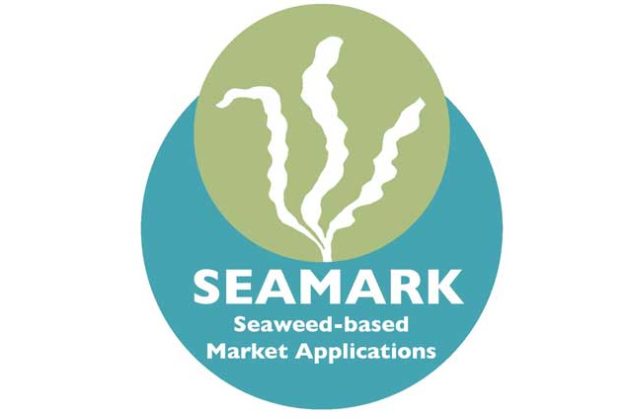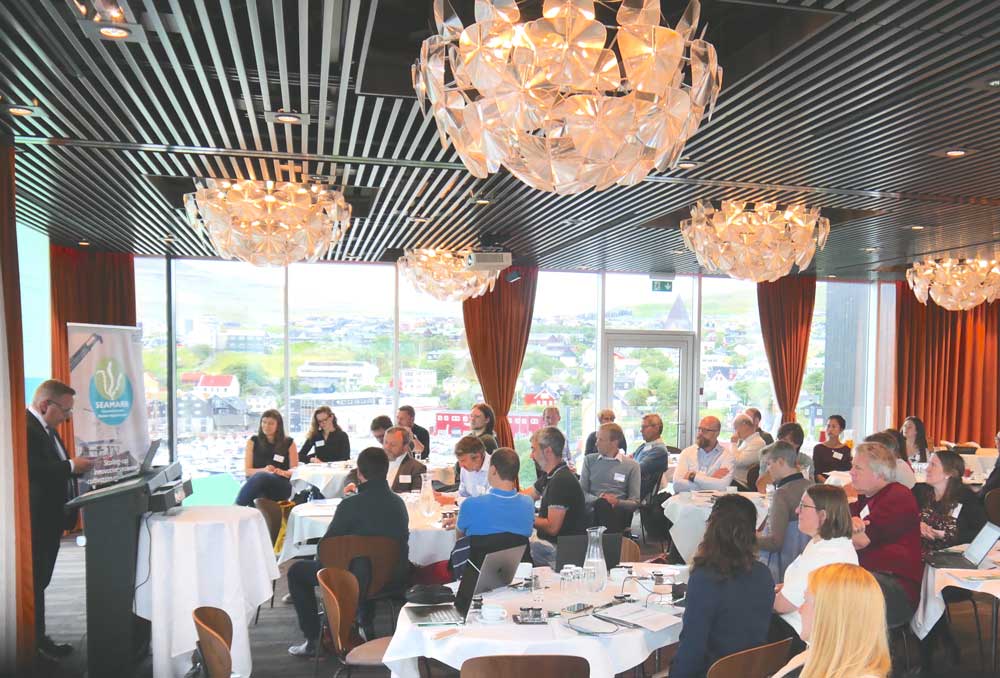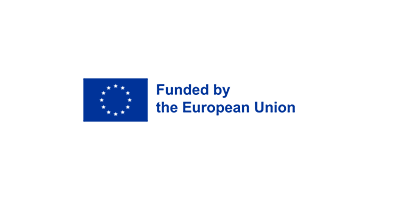SeaMark
Seaweed-based market applications

SeaMark aims to upscale circular ocean seaweed cultivation and land-based integrated multi-trophic aquaculture (IMTA) systems and develop novel processing methods involving fermentation and biotransformation into twelve innovative seaweed-based products.
Start
01. Jun 2022
End
30. Jun 2026
Funded by
Horizon Europe (EU)
Cooperation
25 partners from European industry and research, coordinated by Ocean Rainforest in the Faroe Islands.
Project Manager(s):
Other Participants:
Updates
December 2024: Film about the partners
https://www.youtube.com/watch?v=_CeP_Irtudc
Januar 2023: Website launched
The project website has been launched. Visit the website seamark.eu

September 2022: Project kickoff
Over 50 major players in the European seaweed industry convened in Tórshavn in the Faroe Islands last week to officially launch the SeaMark Horizon Europe project.
Over four years, partners will deliver 12 seaweed-based products for commercial exploitation.
The consortium will leverage the unique properties of seaweed to prove the seaweed sceptics wrong and put seaweed front and centre of a new circular bio-based economy.
Background
Seaweed is a valuable and underutilised resource that has large potential for exploitation in a variety of markets. Seaweed cultivation is a natural solution for mitigating climate change.
The European seaweed industry remains in its infancy and requires significant growth in order to become commercially viable. Seamark will utilise recent ground-breaking selective breeding technologies within EU seaweed crop genetics to increase biomass yield.
Goal
SeaMark aims to upscale circular ocean seaweed cultivation and land-based integrated multi-trophic aquaculture (IMTA) systems and develop novel processing methods involving fermentation and biotransformation into twelve innovative seaweed-based products.
The entire value chain will be analysed for techno-economic feasibility and socio-economic impact. SeaMark will also identify and quantify ecosystem services provided by seaweed cultivation.
This will feed into a strategic development plan for upscaling seaweed production, and addressing the carrying capacity of seaweed cultivation in Europe.
Due to the need to build more resilient food systems and decrease reliance on fossil-based products, it is necessary to grow the blue bio-economy through seaweed cultivation and product innovation.
SeaMark will help fulfil the United Nations Sustainable Development Goals (3, 8, 9, 12, 13 & 14) by developing this industry and, simultaneously, providing a positive impact on people and the planet.
What we do
The main areas of research and innovation in SeaMark are
- Selective breeding, Cultivation, harvesting & pre-processing,
- Biorefinery processing for bioactives, fibers & biomaterials,
- Health promoting effects of fermented seaweed,
- Co-extraction towards commodity & speciality ingredients,
- Product application development,
- Go-to-market strategies for products,
- Techno-economic & socio-economic assessments,
- Ecosystem Services & Life Cycle Assessment, and
- Stakeholder outreach, training & strategic development.
Nofima is responsible for developing Go-to-market strategies for the seaweed products developed in the project, and also contributes to the work on cultivation, harvesting & pre-processing and the techno-economic & socio-economic assessments.
Updates from the project (SeaMark.eu)
Worth knowing
Publications
